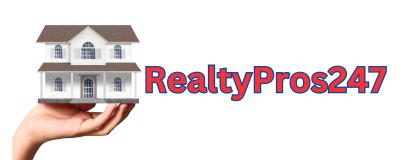In the fast-paced and dynamic world of real estate, staying ahead of the curve is crucial for success. With the advent of social media, real estate professionals have been presented with a golden opportunity to enhance their marketing efforts and build a compelling brand presence. In this blog post, we will explore how the judicious use of social media can propel your real estate marketing strategies to new heights.
1. Choosing the Right Platforms
Not all social media platforms are created equal, and the key to successful real estate marketing lies in selecting the right ones for your target audience. Facebook, Instagram, Twitter, LinkedIn, and even emerging platforms like TikTok each have unique features that cater to different demographics. For instance, Instagram is image-centric, making it ideal for showcasing visually appealing properties, while LinkedIn might be more effective for connecting with professionals in the industry. Understanding your audience and aligning your content with the strengths of each platform is a fundamental step.
2. Building a Strong Visual Identity
Real estate is inherently visual, and social media platforms provide the perfect canvas to showcase your properties in the best light possible. High-quality photos and videos are essential for capturing the attention of potential buyers. Investing in professional photography and videography will not only make your listings stand out but also contribute to the overall aesthetic of your brand. Consistency in visual elements such as colors, filters, and branding ensures that your content is instantly recognizable, fostering trust and familiarity among your audience.
3. Engaging Content Creation
Beyond property listings, engaging content is vital for maintaining an active and interested audience. Create a content calendar that includes a mix of property highlights, market trends, neighborhood spotlights, and even behind-the-scenes glimpses of your real estate journey. Encourage audience interaction by posing questions, running polls, and responding promptly to comments. Building a sense of community around your brand fosters trust and loyalty among your followers.
4. Utilizing Paid Advertising
While organic reach is valuable, paid advertising on social media can significantly amplify your message. Platforms like Facebook and Instagram offer targeted advertising options that allow you to reach specific demographics based on location, interests, and more. Investing in sponsored posts or targeted ads ensures that your listings are seen by potential buyers who are actively looking for properties in your area.
5. Leveraging Video Content
Video content is increasingly becoming the king of social media. Utilize platforms like YouTube, Instagram, and Facebook to create property walkthroughs, virtual tours, and informative videos about the real estate market. Video content not only provides a more immersive experience for potential buyers but also increases the likelihood of your content being shared, thus expanding your reach.
6. Connecting with the Community
Real estate is not just about properties; it’s about communities. Showcase your local expertise by creating content that highlights the unique features and attractions of the neighborhoods you serve. Engage with local businesses, attend community events, and share your experiences on social media. By positioning yourself as a community expert, you not only attract potential buyers but also establish yourself as a trustworthy and knowledgeable professional.
7. Harnessing the Power of Influencers
Collaborating with influencers in the real estate and home improvement niche can exponentially increase your reach. Influencers often have a dedicated and engaged following, and their endorsement can add credibility to your brand. Identify influencers who align with your values and target audience, and explore partnership opportunities that can mutually benefit both parties.
8. Monitoring Analytics and Adjusting Strategies
Social media platforms provide valuable analytics tools that allow you to track the performance of your content. Monitor metrics such as engagement, reach, and conversion rates to assess the effectiveness of your strategies. Use this data to refine your approach, focusing on what resonates most with your audience. A flexible and data-driven approach ensures that your social media marketing efforts continually evolve and improve.
In conclusion, social media has become an indispensable tool for real estate professionals looking to thrive in an increasingly digital landscape. By strategically utilizing platforms, creating compelling content, and fostering community engagement, real estate professionals can not only market properties effectively but also build a robust and recognizable brand in the competitive market. Embrace the power of social media, and watch your real estate endeavors reach new heights.

